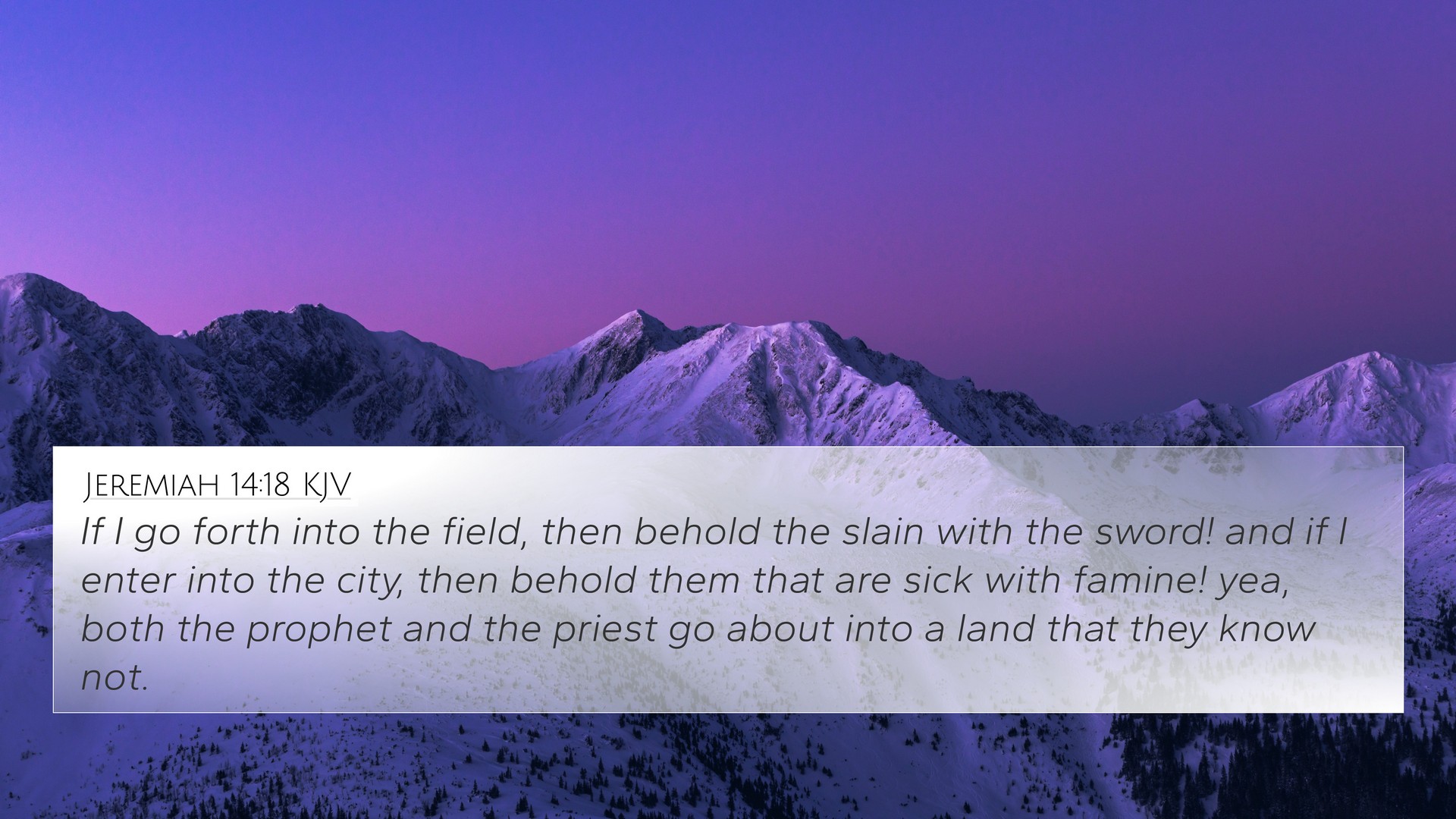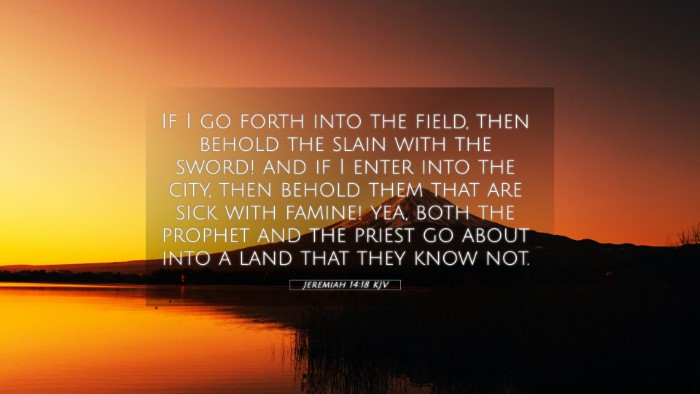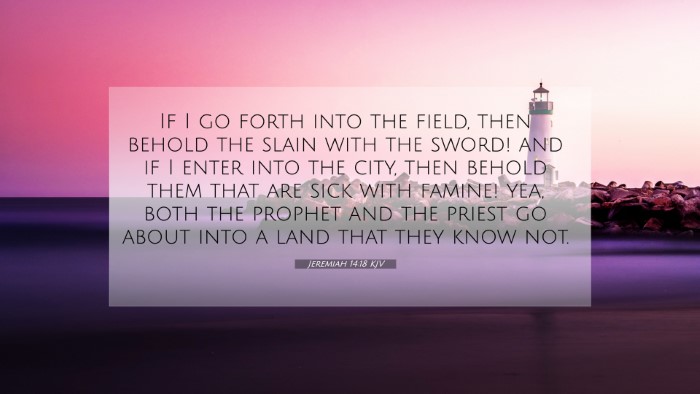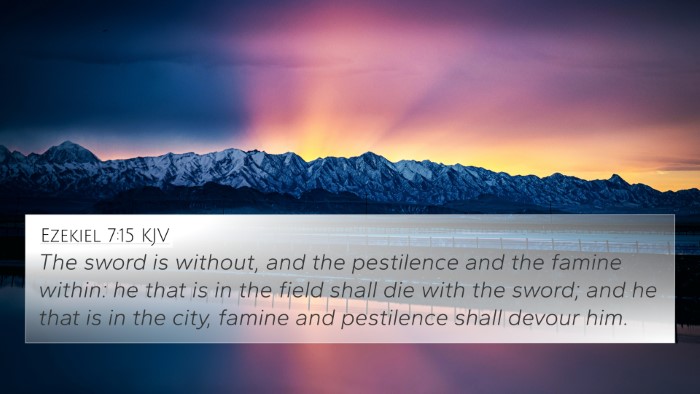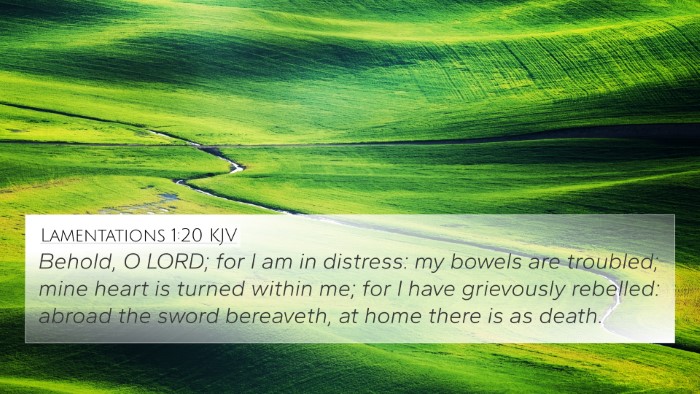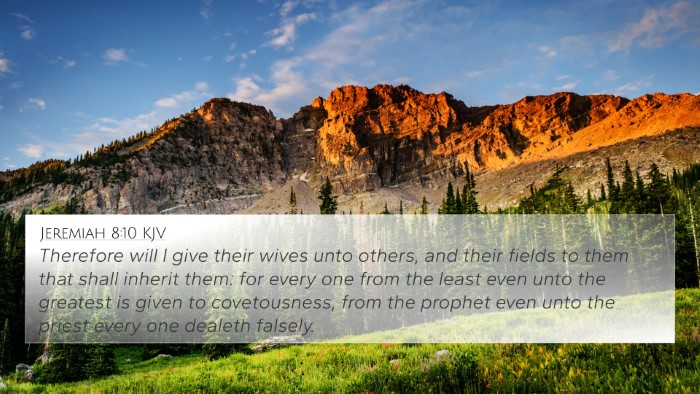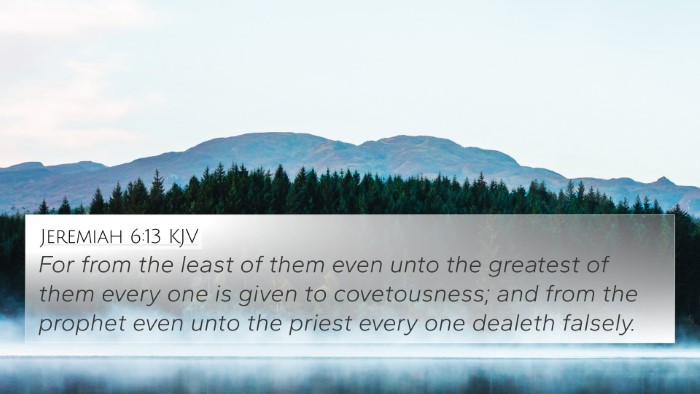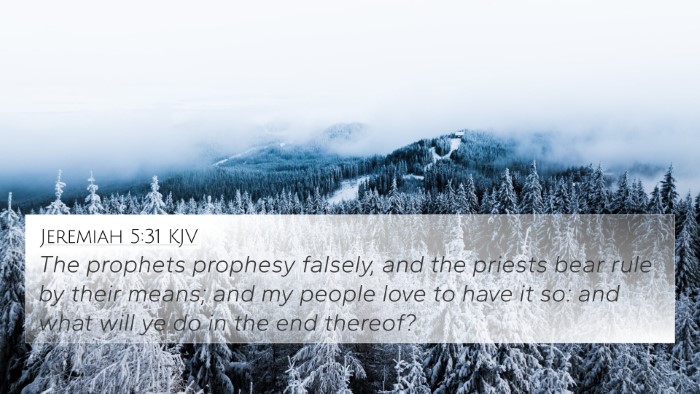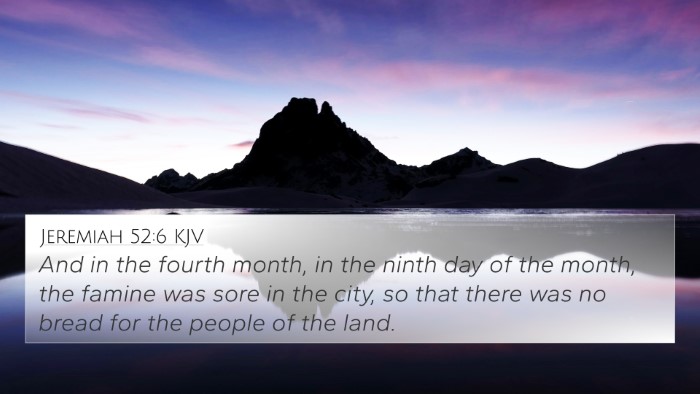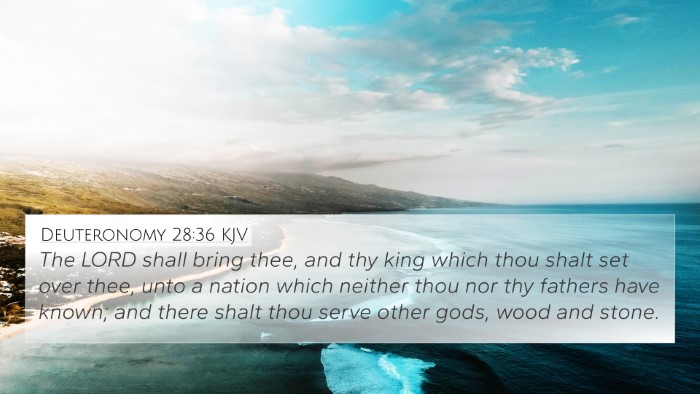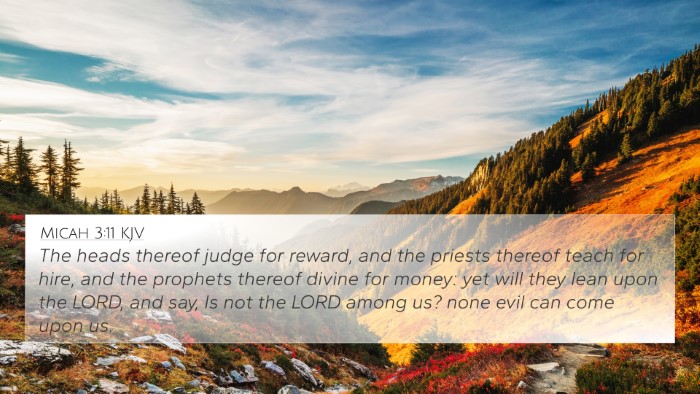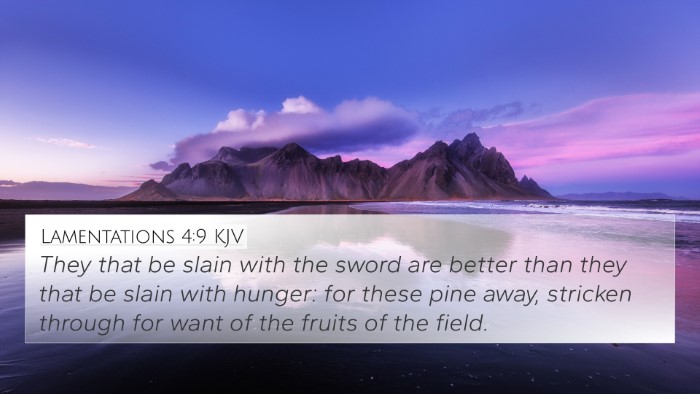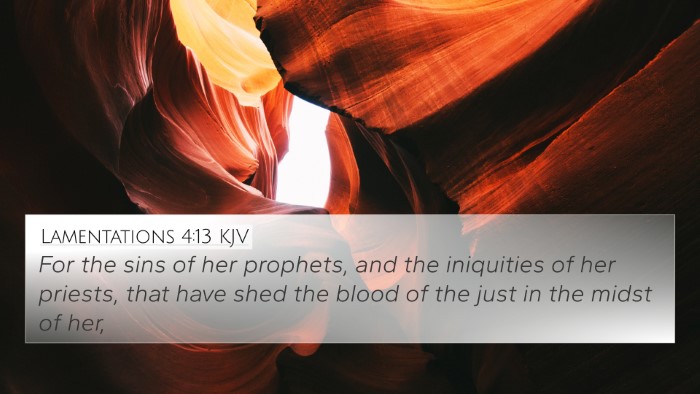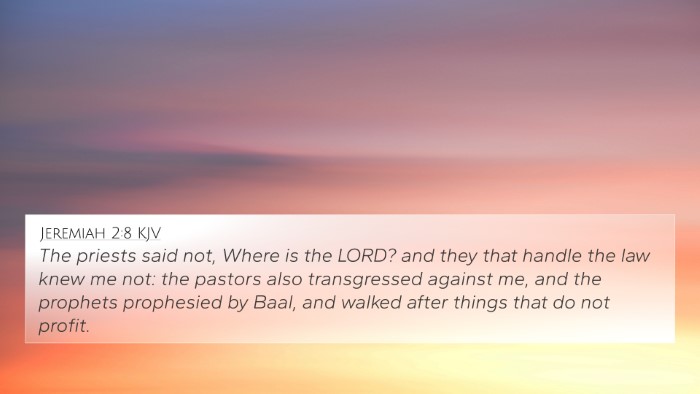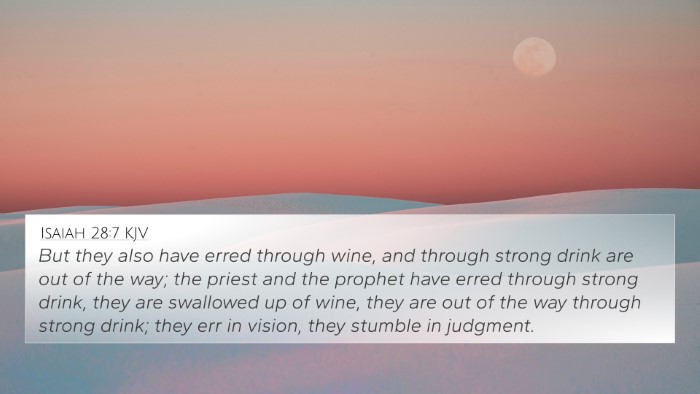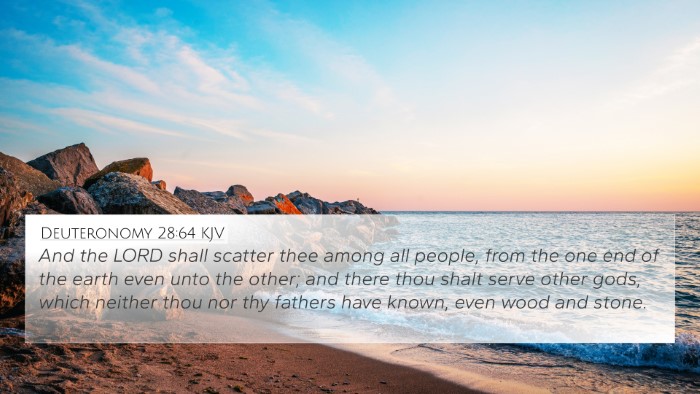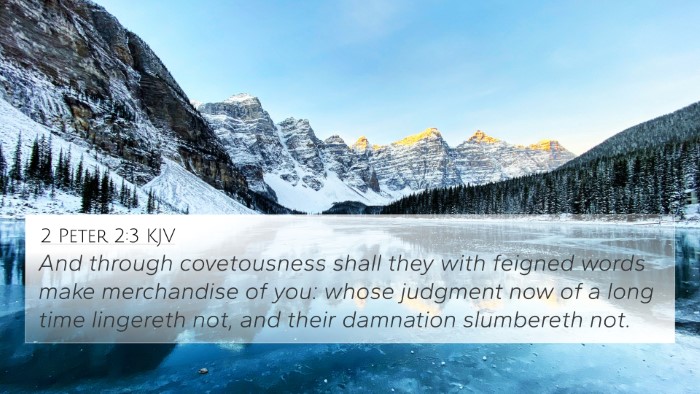Understanding Jeremiah 14:18
Jeremiah 14:18 reads: "If I go out into the field, then behold, the slain with the sword! And if I enter the city, then behold, them that are sick with hunger! Yea, both the prophet and the priest go about into a land that they know not." This verse, situated within a larger context of lamentation and despair, conveys the dire situation in Judah as they face impending judgment. Below, we will explore the meaning of this verse and its connections with other biblical texts.
Summary of Key Insights
This verse illustrates the profound desolation in the land of Judah. The imagery of "slain with the sword" and "sick with hunger" represents the devastation of war and famine threatening the people. Jeremiah, as both a prophet and priest, expresses a deep sense of hopelessness felt throughout Jerusalem, as neither spiritual leaders nor the common man can find solace.
Context and Background
Jeremiah, one of the major prophets, prophesied during a tumultuous time when Judah was facing the Babylonian invasion. The lament reveals the collective suffering experienced by the people and the despair of its leaders who could not offer help or hope.
Commentary Analysis
- Matthew Henry: Henry posits that Jeremiah notes the comprehensive nature of the calamity; it affects all sectors of society—prophets, priests, and the laypeople—illustrating the severity of divine judgment. He highlights the lack of understanding and guidance in the midst of such suffering, with neither religious leaders comprehending the scope of the disaster they face.
- Albert Barnes: Barnes notes the dual imagery of death and hunger. He interprets this as a vivid representation of the consequences of sin—the inevitable collapse of social order and spiritual leadership when the people turn from God. He further emphasizes that the priests and prophets, usually agents of hope, find themselves in lands they do not recognize due to the forfeiture of God’s protection.
- Adam Clarke: Clarke elaborates that the phrase "a land that they know not" underscores the theme of exile and disorientation. Judah’s leaders, once confident in their roles, now find themselves desperate and unclear about their future. Clarke emphasizes the spiritual blindness that prevails when a nation turns away from its divine mandate.
Cross References for Jeremiah 14:18
This verse links with several other biblical passages, revealing deeper themes and truths:
- Lamentations 3:9: “He hath enclosed my ways with hewn stone, He hath made my paths crooked.” - Reflects the sense of hopelessness present in Jeremiah's lament.
- Isaiah 1:7: “Your country is desolate, your cities are burned with fire.” – Similar themes of destruction and desolation present in the land.
- Ezekiel 7:15: “The sword is without, and the pestilence and the famine within.” - A parallel depiction of the fate awaiting those in the land.
- Psalms 9:16: “The Lord is known by the judgment which He executeth: the wicked is snared in the work of his own hands.” - Reiterates themes of judgment and consequence for iniquity.
- Matthew 24:7: “For nation shall rise against nation, and kingdom against kingdom: and there shall be famines, and pestilences, and earthquakes, in divers places.” - Points to the catastrophic events mirroring those faced in Jeremiah's time.
- Luke 13:1-3: “There were present at that season some that told him of the Galilaeans, whose blood Pilate had mingled with their sacrifices... Except ye repent, ye shall all likewise perish.” - A call to repentance in the face of divine judgment.
- Matthew 9:36: “But when he saw the multitudes, he was moved with compassion on them, because they fainted, and were scattered abroad, as sheep having no shepherd.” - Reflects the spiritual vacuum and need for true guidance.
Thematic Connections
The themes in Jeremiah 14:18 resonate throughout Scripture, revealing connections between various biblical texts. Below are significant thematic connections:
- Judgment: The recurrent theme of divine judgment for a nation’s sin can be found throughout the prophets, especially in Isaiah and Ezekiel.
- Desolation: The imagery of desolation in Israel parallels the suffering expressed in the Psalms, especially in Lamentations.
- Hope Amidst Despair: Despite the distress, there remains a theme of eventual restoration found in the later chapters of Jeremiah and in the New Testament teachings of Jesus.
- Spiritual Leadership: The failures of the prophets and priests resonate with the New Testament emphasis on true leadership as exemplified by Christ.
- Penance and Repentance: The call for repentance in Jeremiah reflects a consistent biblical theme leading to restoration and hope found in Christ.
Conclusion
Jeremiah 14:18 encapsulates significant themes of despair, judgment, and the problematic nature of spiritual leadership during a time of crisis. The intertextual connections with other scripture not only highlight the historical context but remind us of the timeless nature of God's messages throughout the Bible. For deeper insights and understanding, utilizing tools for Bible cross-referencing can guide readers in exploring these connections further, leading to a richer comprehension of the Scriptures.
